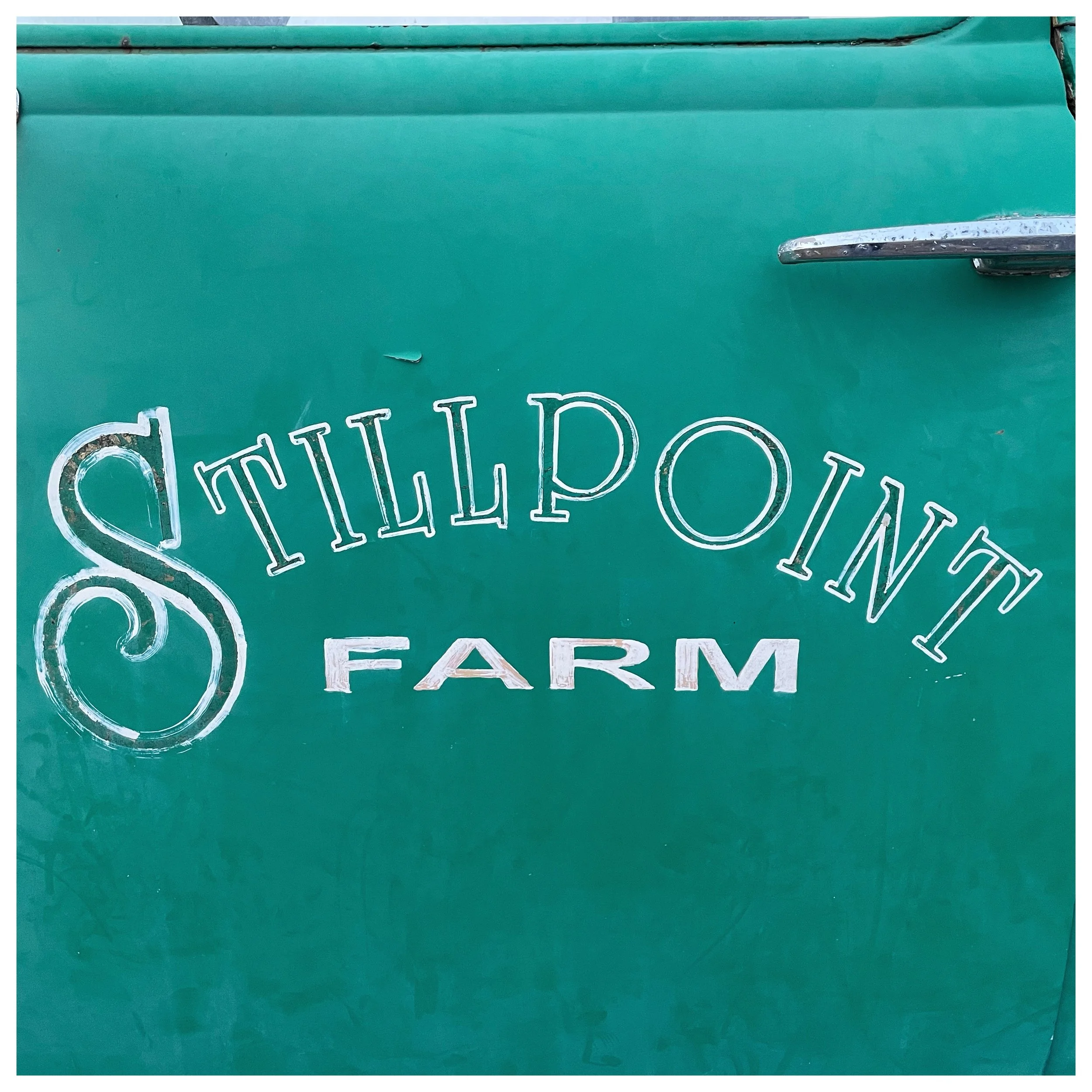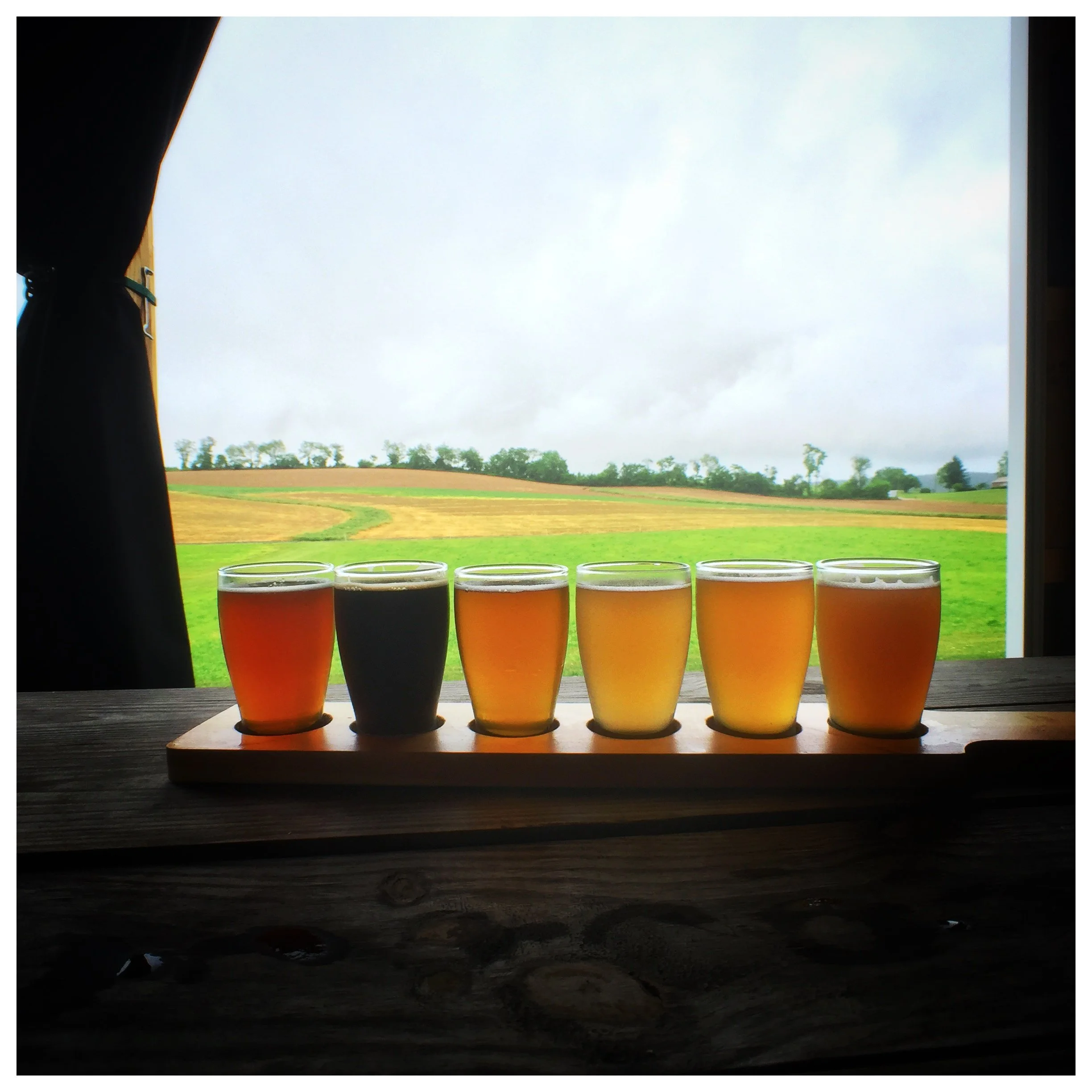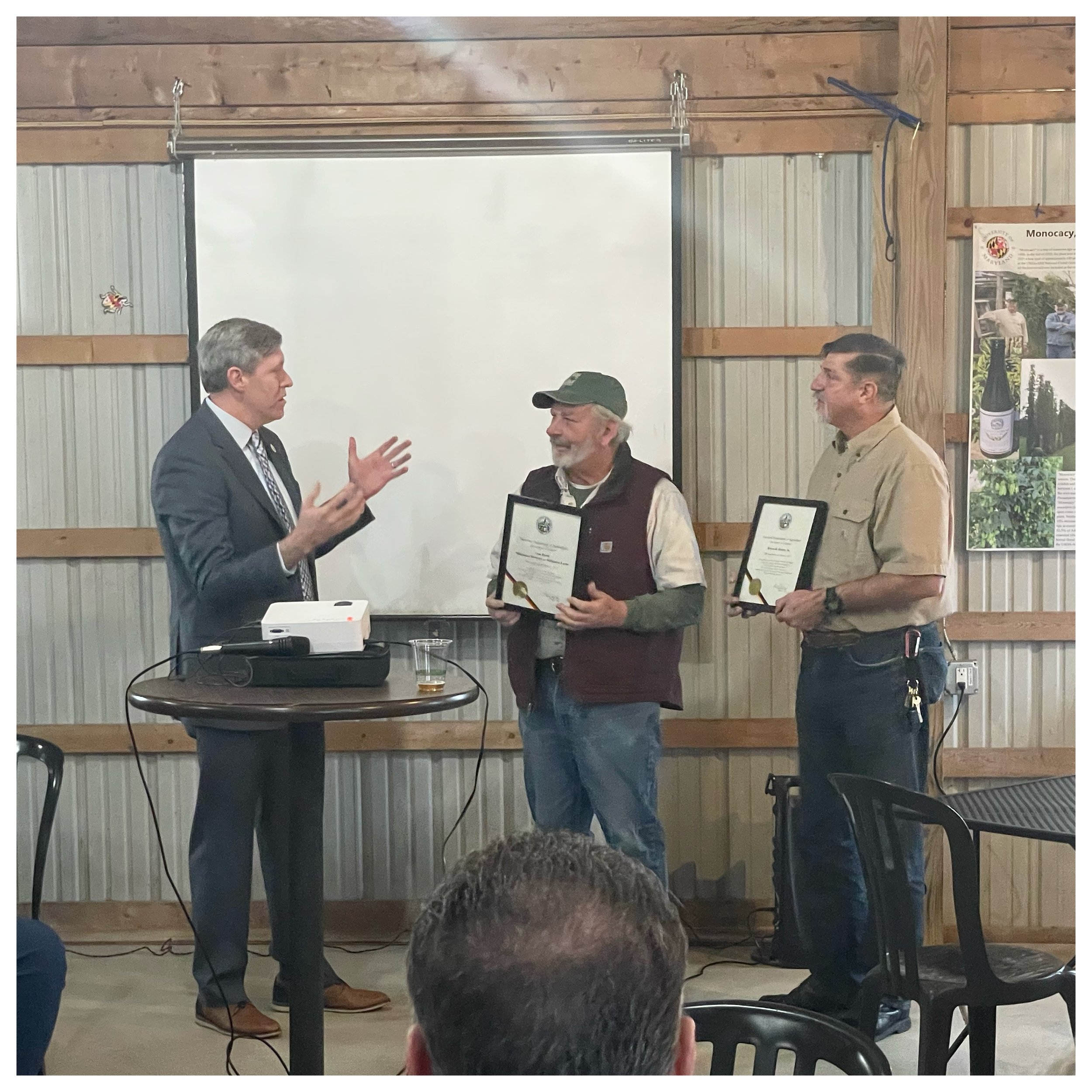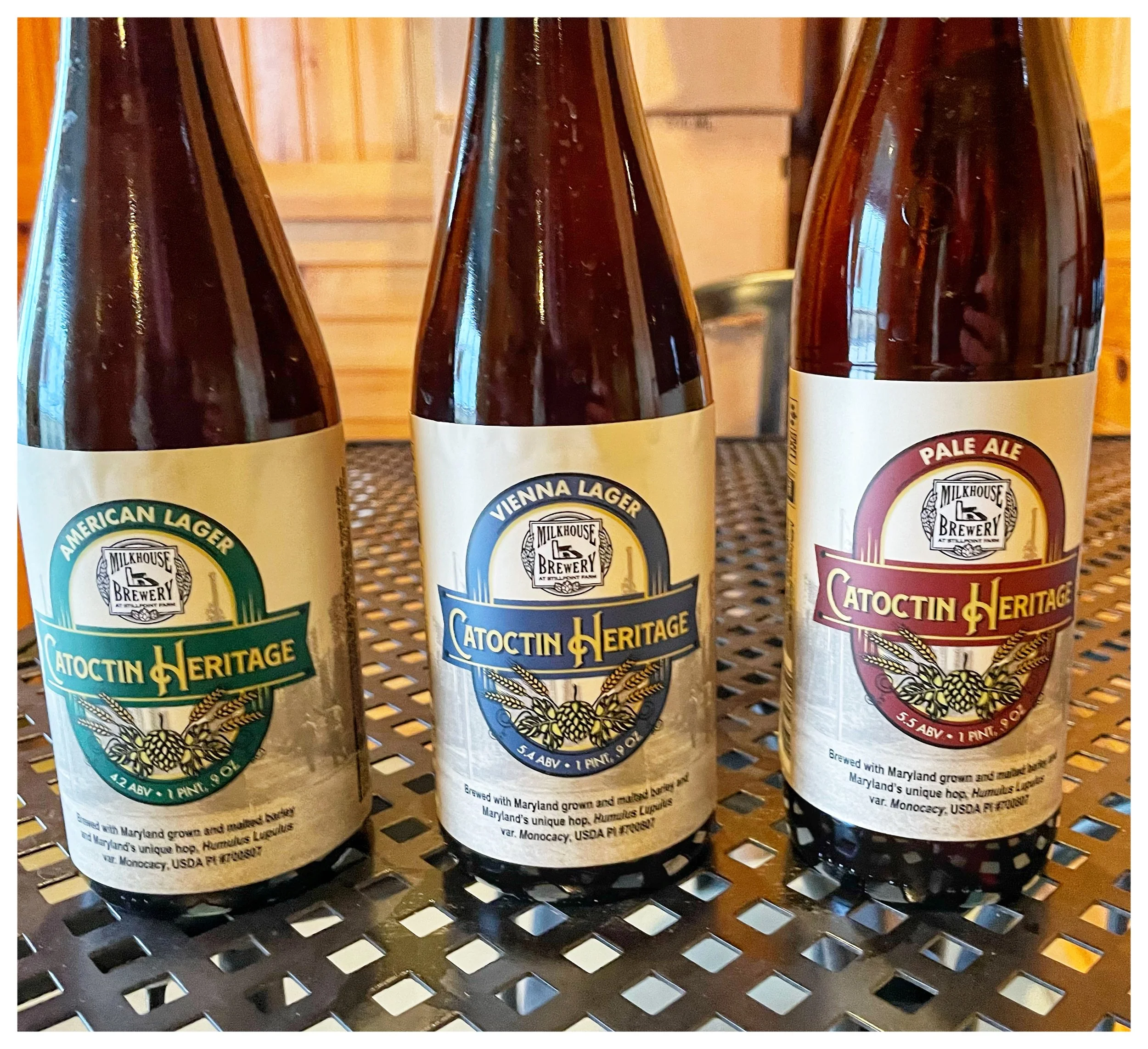It has said that Maryland doesn’t have the right climate to grow hops commercially. Yet, there is a growing movement in the beer industry to use locally grown ingredients in their beer. A new hop has been discovered in Frederick County Maryland that may change that.
YOU CAN'T GROW HOPS IN MARYLAND. That's not completely true since I have four bines successfully growing up a hop pole in my backyard.
YOU CAN'T GROW HOPS COMMERCIALLY IN MARYLAND. That has been the opinion of Brian Butler, the man behind the University of Maryland hop program in Keedysville, MD in Washington County. The more common hops sought after by brewers require too much attention and expense to fight mildew and insects to grow them in large enough volumes to compete with other regions of the country and the world. Think Yakima Valley in Washington State, New Zealand or Bavaria — the main regions that brewers commonly go to for hops to bring exciting flavors to beer.
MORE LOCAL INGREDIENTS PLEASE. Yet, there is a growing movement in the beer industry to use locally grown ingredients in their beer. I recently talked with Billy Deavers at Liquidity Aleworks and asked him what are some things he wished would change in brewing. His response? Access to local ingredients.
THIS ALL MAY BE CHANGING.
The Stillpoint Farm truck greets you when you come to the brewery and taproom
A New Hop(e)
Tom Barse, at Milkhouse Brewing at StillPoint Farm in Frederick county has been in the Maryland beer news lately about a new (perhaps old) hop discovery. It is believed to be a remnant from the days when farmers would brew their beer from ingredients they grew themselves. Tom shared his story with me about how he was pointed to a feral hop on a local farm. How he took that hop discovery and shared it with Brian Butler, principal behind the University of Maryland Cooperative Extension’s hops program.
“In 2013, Thurmont’s Green Spring Farm shared an aggressive growing hop from its property with Mt. Airy’s Milkhouse Brewery. From there, the University of Maryland Extension worked with the USDA to examine the crop , and determined the plant was previously unidentified and completely unique to Maryland. The native plant was titled the Monocacy hop, a tribute to the surrounding region.”
Bucolic view to enjoy a beer flight.
“A collaborative effort between the Brewers Association of Maryland; Grow & Fortify; Milkhouse Brewery at Stillpoint Farm; and the University of Maryland Extension has brought three new Maryland beers made with locally-grown hops to life.”
How it started: Maryland’s Own Hop
Tom Barse started their hop yard at Stillpoint Farm in 2008.
“We used to sell hops to local breweries until we opened Milkhouse Brewery at Stillpoint Farm, in 2013, where we now use all of the hops we grow. A few years back, at an agricultural conference at Linganore Wine Cellars, I met Dr. Ray Ediger, a retired veterinarian living in Utica in Frederick County. He told me about an old hop plant growing on his farm that had been there for years, and wanted to know if I was interested in checking it out.
Tom continues, “I went out to Ray's farm and was amazed to see this enormous hop plant that had taken over his chicken coop, fence, and other farm buildings. Fellow hop growers Brad Humbert, Del Hayes, and I went out and picked some of the hops in early October - which is extremely late for a harvest in Maryland.
I made a few experimental beers at Milkhouse Brewery, and dry-hopped some casks with the hop over the next several years. We also took some rhizomes and cuttings to propagate the hop plant. We thought the hops were interesting, but we also thought it was an old ‘cluster’ variety from the 1800’s when Maryland farmers grew hops for home brewed beer, and to sell to Baltimore breweries. We never really collected enough of this interesting hop to make a full 10-barrel batch.
In 2016, Bryan Butler with University of Maryland Extension started a hop variety trial at the Western Maryland Research and Education Center in Keedysville. After working with Bryan on this project for several years, I mentioned the hop from Dr. Ediger's farm, and Bryan took some rhizomes to propagate for the variety trial in Keedysvile.
Bryan sent some samples to the USDA lab in Corvalis Oregon for evaluation and genetic testing and the hop came back as Unique - and found in Maryland!
Maryland has it's own hop! It seems resistant to many of the diseases that impact other hops grown in Maryland, and the alpha acid content and oil profile seem most similar to old world "noble" hops. We have named the hop humulus lupulus var. monocacy.
We thought we had something pretty cool, so working with Janna Howley and Kevin Atticks at Grow and Fortify we were able to get a USDA/MDA grant to research the hop and make beer. We donated the germplasm to the USDA plant bank and have received a USDA PI number (plant introduction).
Bryan propagated a couple of hundred "starts" of the hop, and planted them in the Spring of 2022. We harvested them in late September of 2022, processed and pelletized them to get ready for brewing.
We now have three different beers in the tank at Milkhouse Brewery, a light American lager, a pale ale, and a Vienna lager - all made with Maryland grown and malted barley - and this unique Maryland hop.
We are thrilled at the unique floral and spicy notes this hop adds to these beers - and we think you will love them when they are released in early 2023.”
The Coming Out Party
On February 3, hosted by Tom at Milkhouse Brewing, Maryland professional brewers, home brewers, farmers and numerous government agencies (including newly appointed Maryland Secretary of Agriculture Kevin Atticks) and media (including yours truly) were introduced to this project and its products. Tom and Bryan presented the backstory of the hop discovery and introduced the hop research project in Keedysville. Tom and company brewed three beers for the a media event at the brewery with the Monocacy hop as a prominent ingredient.
Kevin Atticks (Maryland Secretary of Agriculture (L), awards certificates to Tom Barse (C), and Brian Butler (R).
The evening’s invitees were able to taste each of the three beers and were given a bottle of their choice upon leaving the event.
Catoctin Heritage beers brewed with the Monocacy hop.
Most of the traditional hops used for brewing don't grow well in the Mid-Atlantic region but this one seems to demonstrate a good hardiness and better insect and disease resistance than others. Bryan Butler with the University of Maryland Extension has been testing this hop for a few years now and excited with what he has seen so far.
While the research will continue to determine the long term viability of this hop variety, there is great hope that it may prove to be a good crop for local farmers and hop source for Maryland and regional brewers.
More Information
Since the February coming out party at Milkhouse Brewing there have been additional details and reports of the hop discovery. A few of those are available below:
Frederick News Post: A New Hop-portunity Emerges for Maryland Beer
Uncapped Podcast: The Monocacy Hop. An interview with Tom Barse and Brian Butler.
Brewers Association of Maryland (Youtube): Maryland's Genetically Unique Local Hop - Monocacy Hop
Milkhouse Brewing at Stillpoint Farm
8253 Dollyhyde Rd
Mount Airy, MD 21771
milkhousebrewery.com / untappd





